 W
WBaron Kiyokazu Abo was an admiral in the Imperial Japanese Navy, who served as Navy Minister in the early 1930s.
 W
WKyōsuke Eto was a career officer in the Imperial Japanese Navy in the Russo-Japanese War and in World War I. He was killed in the HMS Vanguard disaster of 1917.
 W
WHisanori Fujita was an admiral in the Imperial Japanese Navy. After retiring from active service, he served as the Chief Chamberlain of Japan and adviser to the Emperor of Japan during World War II.
 W
WEiji Gotō , was an admiral in the Imperial Japanese Navy during World War II.
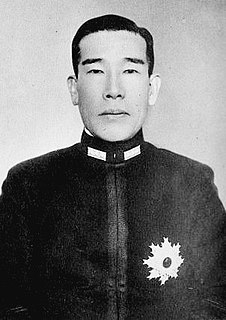 W
WIncorporates information and translations from the corresponding article in the Japanese Wikipedia
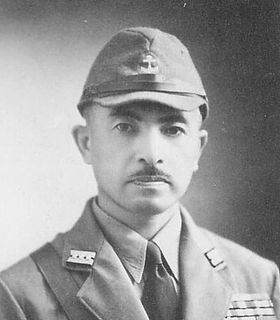 W
WCaptain Koreshige Inuzuka was the head of the Japanese Imperial Navy's Advisory Bureau on Jewish Affairs from March 1939 until April 1942. Unlike his Imperial Japanese Army counterpart, Colonel Yasue Norihiro, he held to an anti-Semitic ideology, believing strongly in the Protocols of the Elders of Zion; but these beliefs led him to think that attracting Jews to settle in Japanese-controlled Asia was in the Empire of Japan's best interests.
 W
WKamio Mitsuomi, 1st Baron, GCMG was a Japanese general in the Imperial Japanese Army, who commanded the Allied land forces during the Siege of Tsingtao in World War I.
 W
WKanji Kato or Kanji Katō (1870–1939) was a Japanese naval officer during World War I.
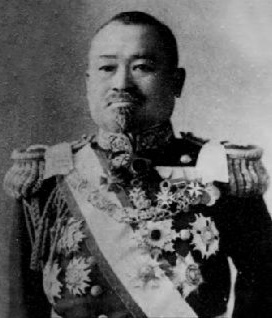 W
WBaron Katō Sadakichi was an admiral in the Imperial Japanese Navy during World War I. His brother, Katō Yasuhisa, was a general in the Imperial Japanese Army, and his adoptive son was the biological son of Admiral Dewa Shigetō.
 W
WShiro Kawase was a vice admiral in the Imperial Japanese Navy during World War II. He was a torpedo expert and his extensive experience as a commander of destroyers and destroyer formations made him more knowledgeable about the escort of convoys than most Japanese commanders of his time. He is best known for his command of the 5th Fleet during the latter stages of the Aleutians campaign in the spring and summer of 1943.
 W
WAdmiral Seizō Kobayashi was a Japanese naval commander, commander of the Combined Fleet of the Imperial Japanese Navy (1931–1933) and the 17th Governor-General of Taiwan (1936–1940).
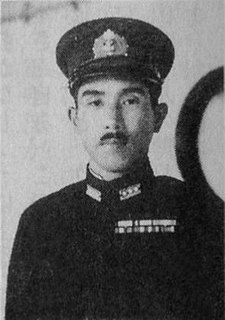 W
WTranslated from the corresponding article in the Japanese Wikipedia
 W
WMatsumura Tatsuo was a vice admiral in the Imperial Japanese Navy.
 W
WMurakami Kakuichi was an admiral in the Imperial Japanese Navy, and served as Navy Minister in the early 1920s.
 W
WOsami Nagano was a Marshal Admiral of the Japanese navy and one of the leaders of Japan's military during most of the Second World War. In April 1941, he became Chief of the Imperial Japanese Navy General Staff. In this capacity, he served as the navy’s commander-in-chief in the Asia-Pacific theater until his removal in February 1944. After the war, he was arrested by the International Military Tribunal for the Far East but died of natural causes in prison during the trial.
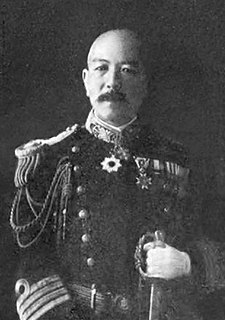 W
WNagata Yasujirō was a vice admiral in the Imperial Japanese Navy.
 W
WVice-Admiral Masaichi Niimi was an admiral in the Imperial Japanese Navy during World War II.
 W
WKojūrō Nozaki was a rear admiral in the Imperial Japanese Navy.
 W
WKeisuke Okada was an admiral in the Imperial Japanese Navy, politician and Prime Minister of Japan from 1934 to 1936.
 W
WBaron Ōtani Kikuzō was a general in the Imperial Japanese Army. Otani participated in the First Sino-Japanese War, Russo-Japanese War, World War I and the Russian Civil War. During the course of the latter he commanded the Vladivostok Expeditionary Force and became the formal commander of the Allied Siberian Intervention. He was elevated to baron upon his retirement in 1920.
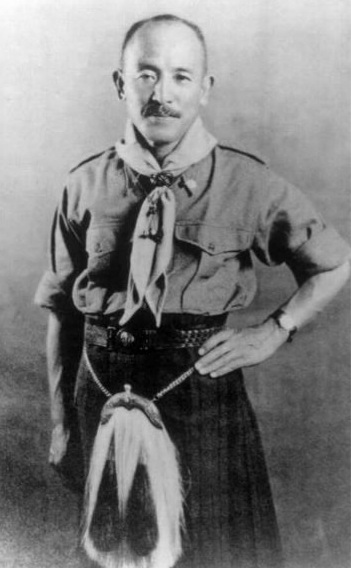 W
WCount Sano Tsuneha was a Japanese admiral in the Imperial Japanese Navy in World War I. He is also noted for his association with the early Scouting movement in Japan.
 W
WKōzō Satō was a Japanese admiral in the Imperial Japanese Navy during World War I.
 W
WSatō Tetsutarō was a Japanese military theorist and an admiral in the Imperial Japanese Navy.
 W
WMarshal-Admiral Baron Shimamura Hayao was a Japanese admiral during the First Sino-Japanese and Russo-Japanese Wars as well as one of the first prominent staff officers and naval strategists of the early Imperial Japanese Navy.
 W
WKōichi Shiozawa was an admiral in the Imperial Japanese Navy during the Second Sino-Japanese War. The literary critic Rinsen Nakazawa was his older brother.
 W
WNobumasa Suetsugu was an admiral in the Imperial Japanese Navy, and briefly served as Home Minister in the 1940s.
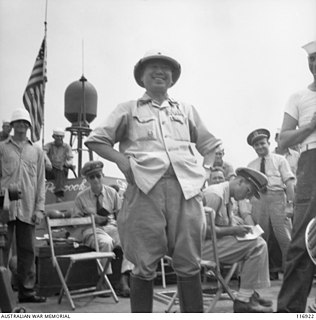 W
WLieutenant-Colonel Tatsuji Suga of the Imperial Japanese Army was the commander of all prisoner-of-war (POW) and civilian internment camps in Borneo, during World War II. Suga committed suicide five days after being taken prisoner by Australian forces in September 1945.
 W
WYoshitsugu Tatekawa was a lieutenant-general in the Imperial Japanese Army in World War II. He played an important role in the Mukden Incident in 1931 and as Japanese ambassador to the Soviet Union he negotiated the Soviet–Japanese Neutrality Pact in 1941.
 W
WTōgō Kichitarō was a vice admiral in the Imperial Japanese Navy.
 W
WYamanashi Hanzō was a general in the Imperial Japanese Army, Army Minister and Governor-General of Korea from 1927 to 1929.
 W
WYamaya Tanin was a naval theorist and admiral in the Imperial Japanese Navy during the early twentieth century. He was a great-grandfather of Japanese Empress Masako through her mother's lineage.
 W
WBaron Yashiro Rokurō was an admiral in the Imperial Japanese Navy and Navy Minister, succeeding the last of the Satsuma-era naval leaders of the early Meiji period.
 W
WYoshida Masujirō was a vice admiral in the Imperial Japanese Navy.